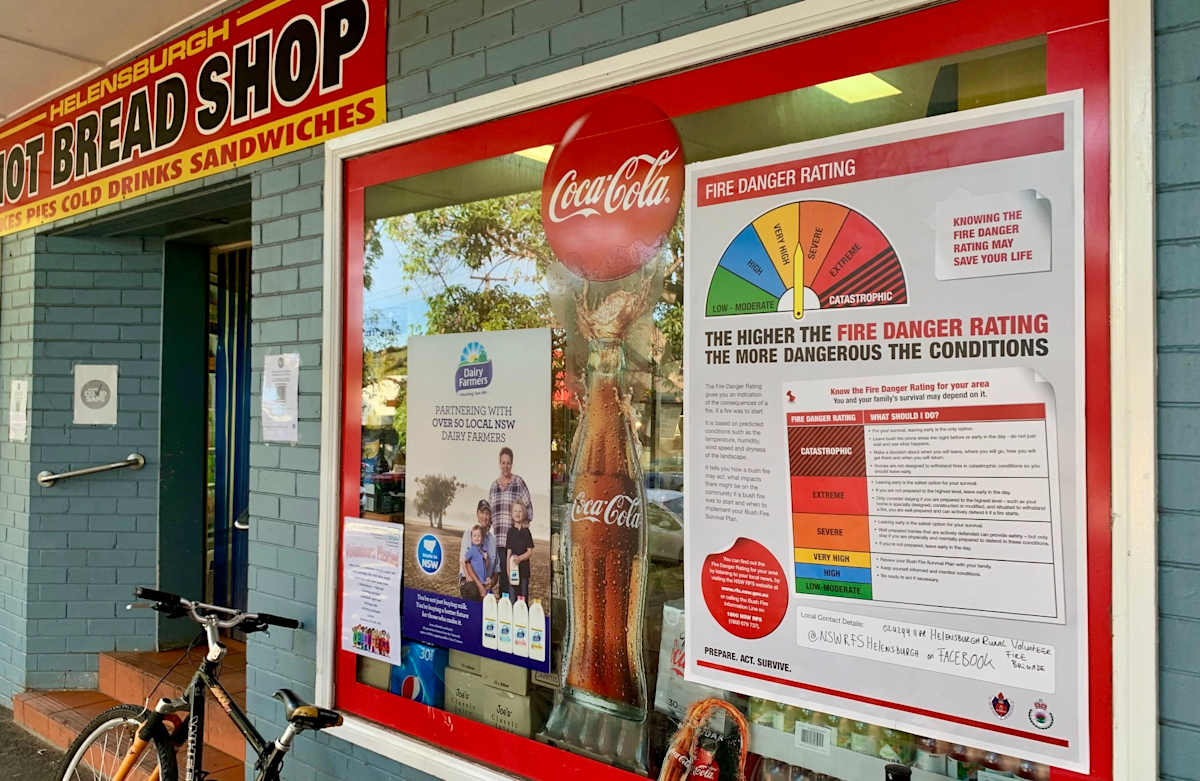Get Ready, for real
Your bushfire questions answered by Senior Deputy Captain Michael Pratt, Deputy Captain Aaron West and firefighter Rebecca May of the Helensburgh Rural Volunteer Fire Brigade. Do we need to get out each time the Fire Danger Rating for the day...

Your bushfire questions answered by Senior Deputy Captain Michael Pratt, Deputy Captain Aaron West and firefighter Rebecca May of the Helensburgh Rural Volunteer Fire Brigade.
Do we need to get out each time the Fire Danger Rating for the day indicates severe or extreme?
Aaron: The fire danger ratings are published each day to prepare you, about how a fire is going to react under the conditions on those days. So if the rating is low to moderate and a fire starts, it’s going to be small and moving slowly. With a high fire danger rating, obviously the intensity picks up. Once you start getting up into severe, extreme and catastrophic ratings, it is uncontrollable.
As an individual, you need to look at those ratings and figure out that you’re going to be able to cope in those conditions in the event of a fire.
Look at where you’re situated with your house, whether you have young kids or whether you have elderly people, and when there is a fire whether you can actually cope under those conditions. The easiest way to put it: if you think that when a fire starts, in severe or extreme, a fire truck is going to be able to pull up and successfully put it out quite quickly, that’s not likely to happen.
Michael: If a Fire Danger Rating is extreme or catastrophic – there are no houses designed or built to withstand those conditions.
You would have to be really confident in yourself. If a fire does start up, you’re better off enacting your bush fire survival plan and leaving early. On those days it’s going to be so intensive. It’s hard to describe what you’re going to go through.
Basically, if you’re going to leave, leave early. Don’t wait until you see smoke in the sky or hear a siren.
Rebecca: Unless you are really prepared and your property is prepared and you’ve got things like portable pumps and you’ve got a good static water supply, it’s not worth staying. It’s really not.

Do I really have to leave every time?
Aaron: We could have a couple of catastrophic days in summer and nothing will actually happen on those days. If that’s the case, don’t lower yourself into a false sense of security.
If your plan is to leave early and your mark is extreme or catastrophic, you should leave early regardless of whether anything does happen or not. Because the day you don’t enact it is the day something may happen and you will get caught out.
It’s a hard thing at times. You leave town, then nothing happens and you come back. Then a few days later another bad day and you leave town, nothing happens. The third time, and you decide not to leave town, there is a chance that something may happen.
Michael: Aaron, back in 2001, how quickly did the fire get from Appin to Helensburgh?
Aaron: In 2001 the fire spread quite quickly and came in with some speed. It started out near Appin at 11am in the morning. By around 2.30pm in the afternoon, it had already gone through Darkes Forest and was on its way to Helensburgh.
It is an indication of what can actually happen in this town on a day with the wrong conditions – whether that is catastrophic, extreme or severe.
Rebecca: We have a lot of bush around here that hasn’t been burnt in recent years. People need to be mindful of that. If we do get a fire here on one of those days of severe or higher, the potential for major damage and threat to life is highly likely.
MAKE A PLAN
Visit www.myfireplan.com.au
If you would like to hear more about preparing for bushfire season in the 2508 area, watch the video on Facebook @NSWRFSHelensburgh
If you have questions, contact your local brigade via Facebook @NSWRFSHelensburgh or call the Bush Fire Information Line,
1800 NSW RFS (1800 679 737)





